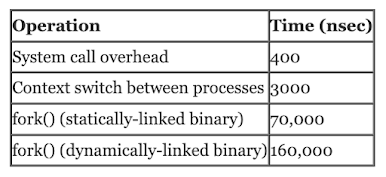private static void PrintMaxOfEvery5Mins(Log[] logs)
{
Array.Sort(logs, (l1, l2) => {
return l1.Timestamp.CompareTo(l2.Timestamp);
});
Dictionary<string, LinkedListNode<int>> resourceToFreqNodeMap = new Dictionary<string, LinkedListNode<int>>();
Dictionary<int, HashSet<string>> freqToResourcesMap = new Dictionary<int, HashSet<string>>();
LinkedList<int> frequenciesList = new LinkedList<int>();
Queue<Log> queue = new Queue<Log>();
foreach(var log in logs)
{
if (queue.Count > 0 && log.Timestamp - queue.Peek().Timestamp >= 5)
{
Console.WriteLine(GetMaxOf5Mins(freqToResourcesMap, frequenciesList));
while (queue.Count > 0 && log.Timestamp - queue.Peek().Timestamp >= 5)
{
DecrementCount(queue.Dequeue().Resource, resourceToFreqNodeMap, freqToResourcesMap, frequenciesList);
}
}
queue.Enqueue(log);
IncrementCount(log.Resource, resourceToFreqNodeMap, freqToResourcesMap, frequenciesList);
}
if (queue.Count > 0)
{
Console.WriteLine(GetMaxOf5Mins(freqToResourcesMap, frequenciesList));
}
}
private static void IncrementCount(string resource,
Dictionary<string, LinkedListNode<int>> resourceToFreqNodeMap,
Dictionary<int, HashSet<string>> freqToResourcesMap,
LinkedList<int> frequenciesList)
{
if (!resourceToFreqNodeMap.ContainsKey(resource))
{
AddResource(resource, resourceToFreqNodeMap, freqToResourcesMap, frequenciesList);
}
else
{
IncResourceCount(resource, resourceToFreqNodeMap, freqToResourcesMap, frequenciesList);
}
}
private static void AddResource(string resource,
Dictionary<string, LinkedListNode<int>> resourceToFreqNodeMap,
Dictionary<int, HashSet<string>> freqToResourcesMap,
LinkedList<int> frequenciesList)
{
if (!freqToResourcesMap.ContainsKey(1))
{
freqToResourcesMap[1] = new HashSet<string>();
frequenciesList.AddFirst(1);
}
freqToResourcesMap[1].Add(resource);
resourceToFreqNodeMap[resource] = frequenciesList.First;
}
private static void IncResourceCount(string resource,
Dictionary<string, LinkedListNode<int>> resourceToFreqNodeMap,
Dictionary<int, HashSet<string>> freqToResourcesMap,
LinkedList<int> frequenciesList)
{
var freqNode = resourceToFreqNodeMap[resource];
int currCount = freqNode.Value;
int newCount = currCount + 1;
if (!freqToResourcesMap.ContainsKey(newCount))
{
freqToResourcesMap[newCount] = new HashSet<string>();
frequenciesList.AddAfter(freqNode, newCount);
}
freqToResourcesMap[newCount].Add(resource);
freqToResourcesMap[currCount].Remove(resource);
resourceToFreqNodeMap[resource] = freqNode.Next;
if (freqToResourcesMap[currCount].Count == 0)
{
frequenciesList.Remove(freqNode);
freqToResourcesMap.Remove(currCount);
}
}
private static void DecrementCount(string resource,
Dictionary<string, LinkedListNode<int>> resourceToFreqNodeMap,
Dictionary<int, HashSet<string>> freqToResourcesMap,
LinkedList<int> frequenciesList)
{
var freqNode = resourceToFreqNodeMap[resource];
int currCount = freqNode.Value;
int newCount = currCount - 1;
if (newCount > 0)
{
if (!freqToResourcesMap.ContainsKey(newCount))
{
freqToResourcesMap[newCount] = new HashSet<string>();
frequenciesList.AddBefore(freqNode, newCount);
}
freqToResourcesMap[newCount].Add(resource);
resourceToFreqNodeMap[resource] = freqNode.Previous;
}
freqToResourcesMap[currCount].Remove(resource);
if (freqToResourcesMap[currCount].Count == 0)
{
frequenciesList.Remove(freqNode);
freqToResourcesMap.Remove(currCount);
}
if (newCount == 0)
{
resourceToFreqNodeMap.Remove(resource);
}
}
private static string GetMaxOf5Mins(Dictionary<int, HashSet<string>> freqToResourcesMap,
LinkedList<int> frequenciesList)
{
if (frequenciesList == null)
{
return string.Empty;
}
return freqToResourcesMap[frequenciesList.Last.Value].First();
}
}
class Log
{
public int Timestamp {get; private set;}
public string User {get; private set;}
public string Resource {get; private set;}
public Log(string timestamp, string user, string resource)
{
this.Timestamp = int.Parse(timestamp);
this.User = user;
this.Resource = resource;
}
}









